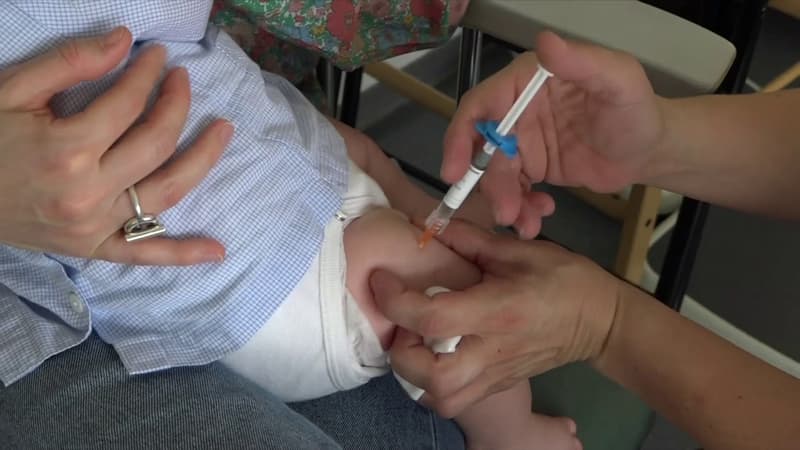While the bronchiolitis epidemic has just begun in France, pediatric emergencies are already sounding the alarm, with several services saturated. This virus, which particularly affects young children, is highly contagious and can be serious in babies. But a vaccine, under study, could protect children from contracting bronchiolitis.
In mid-September, Sanofi obtained the green light from the European Medicines Agency’s Committee for Medicinal Products for Human Use (CHMP) for nirsevimab, a drug intended to prevent bronchiolitis in newborns.
“It is a really promising treatment for young children, which will probably allow them to be effectively protected each winter and limit excess hospitalizations,” Florence Flamein, a pediatrician and national coordinator of the Harmonie study, who is testing this drug in life, says on BFMTV. real.
“Nirsevimab resulted in a 74.5% reduction in RSV lower respiratory tract infections requiring medical treatment in healthy infants,” Sanofi said in a March 2022 news release, after a trial of phase III.
Babies born after February 7, 2022
Nirsevimab, developed jointly by the British AstraZeneca and the French Sanofi, which will market it under the name Beyfortus, is an antibody designed to protect infants during the respiratory syncytial virus (RSV) circulation season, a virus caused by bronchiolitis. It is injected in a single dose.
Several dozen centers are currently testing this product in newborns as part of the Harmonie study. Babies aged 0 to 12 months, born after February 7, 2022 (that is, the end of the last bronchiolitis epidemic in France), can enroll in the study, explains the University Hospital of Lille on its site.
Beyfortus differs from vaccines that use traditional technologies because it is a monoclonal antibody, that is, an antibody developed in the laboratory, which allows the so-called passive immunity to be conferred on the infant, with a single dose. The baby has not yet been able to develop its immune response, “we give it antibodies that will protect it,” Jean-François Toussaint, Sanofi’s head of vaccine research and development, explains to AFP.
To date, there is only one vaccine (again a preventative medicine) against bronchiolitis, marketed by AstraZeneca under the name Synagis. But this drug is authorized for marketing only in at-risk or premature children, and requires multiple doses.
10,000 hospitalizations per year in France
Bronchiolitis is a common and highly contagious respiratory illness, especially in infants 2 to 8 months of age, where it causes coughing and shortness of breath. Every year in France, 30% of children under the age of two are affected. Most of the time, the disease is mild. But it may require a visit to the emergency room or even a hospital stay.
“It is estimated that bronchiolitis generates 30,000 consultations a year in France and will be responsible for 10,000 hospitalizations, which necessarily greatly disrupts pediatric services at this time”, recalls Florence Flamein.
Sanofi and AstraZeneca are currently leading laboratories in the development of vaccines against bronchiolitis, which represents a huge potential market. Others are also in the running, including, for example, Moderna, which is developing a messenger RNA vaccine against RSV, but this time for older people.
If subsequently approved by the European Commission, Beyfortus will become the first and only single-dose passive immunizing agent indicated for all infants. If the results are conclusive, the product could reach the market in 2024.
Source: BFM TV


